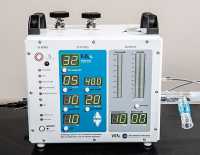Author Interviews, Brigham & Women's - Harvard, Mental Health Research, NIH / 19.04.2024
Mass General Study Evaluates AI Narrative to Detect Childbirth-Related PTSD
MedicalResearch.com Interview with:
Sharon Dekel PhD
Principal Investigator
Director of the Postpartum Traumatic Stress Disorders Research Program
Department of Psychiatry, Massachusetts General Hospital
Department of Psychiatry, Harvard Medical School
Boston, MA, 02114
MedicalResearch.com: What is the background for this study?
Response: Maternal psychopathologies affect a significant number of American women and are the leading complications of childbirth and a significant contributor to maternal death. Maternal (physical) morbidity in the US remain the highest among all countries in the West, suggesting that some women will have a traumatic childbirth experience.
The most common mental illness associated with trauma is posttraumatic stress disorder (PTSD). PTSD stemming from childbirth is estimated to affect 6% of delivering women (https://pubmed.ncbi.nlm.nih.gov/28443054/). In high-risk groups, for example women who have unscheduled Cesareans the rate is estimated at 20% or higher (https://pubmed.ncbi.nlm.nih.gov/31041603/.).
Although we screen for postpartum depression in hospitals in the USA there is no screening for what we define as childbirth-related PTSD (CB-PTSD). The overarching goal of the Dekel Lab is to develop novel and patient-friendly screening tools to identify women with this disorder. As importantly traumatic childbirth disproportionality affects Black and Latina women (https://pubmed.ncbi.nlm.nih.gov/35598158/).
(more…)





















